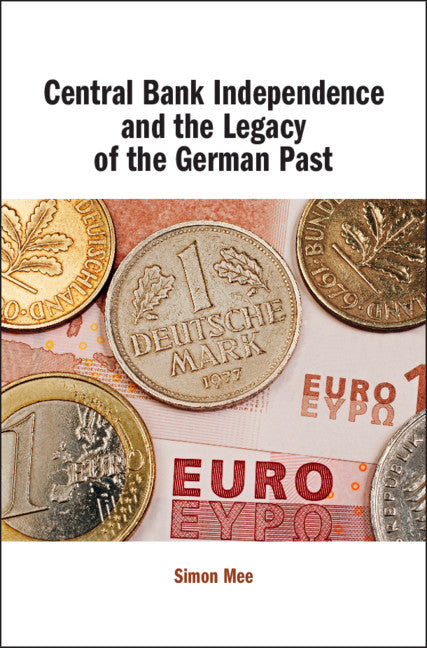Freshly Printed - allow 10 days lead
Couldn't load pickup availability
Central Bank Independence and the Legacy of the German Past
A study of the power struggle between Germany's central bank and the West German government to control monetary policy in the post-war era.
Simon Mee (Author)
9781108499781, Cambridge University Press
Hardback, published 12 September 2019
368 pages, 13 b/w illus. 3 tables
23.5 x 15.8 x 2.1 cm, 0.74 kg
'Simon Mee has written a fluent and compelling account of one the most important financial institutions in Europe which should be read by anybody with an interest in the history of modern Germany, or the role of central banks.' Sean Byrne, Zeitschrift für Unternehmensgeschichte vol. 66, no. 2, 2021
The 2008 financial crisis led to more and more frequent political attacks on central banks. The recent spotlight on central bank independence is reminiscent of the fiery debates amongst Germany's political elites in 1949 on the same issue; debates that were sparked by the establishment of West Germany in that year. Simon Mee shows how, with the establishment of West Germany's central bank - today's Deutsche Bundesbank - the country's monetary history became a political football, as central bankers, politicians, industrialists and trade unionists all vied for influence over the legal provisions that set out the remit of the future monetary authority. The author reveals how a specific version of inter-war history, one that stresses the lessons learned from Germany's periods of inflation, was weaponised and attached to a political, contemporary argument for an independent central bank. The book challenges assumptions around the evolution of central bank independence with continued relevance today.
Introduction
1. In search of the Reichsbank
2. The Bank deutscher Länder and the foundation of West Germany, 1948–51
3. Adenauer's challenge: the 'Gürzenich affair' and the Bank deutscher Länder, 1956–7
4. The shadow of national socialism: Karl Blessing and the Bundesbank in 1965
5. The Bundesbank, social democracy and the era of the 'Great Inflation', 1970–78
Conclusion.
Subject Areas: Economic history [KCZ], Macroeconomics [KCB], 20th century history: c 1900 to c 2000 [HBLW], European history [HBJD]


